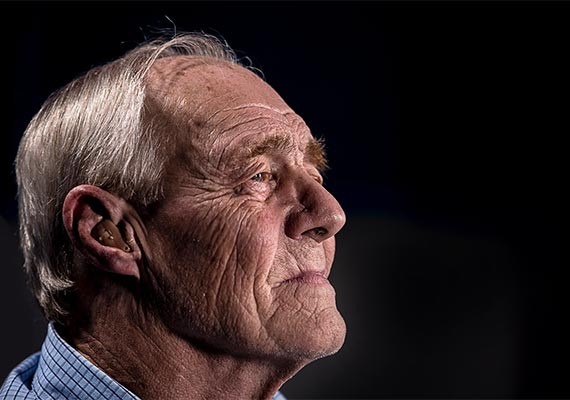MONUMENT

MOre NUrturing and More Empowerment Nested in Technology
Priority Axis
Technological and Social InnovationSpecific objective
Social Innovation
Lead partner
City of MechelenContact
Start Date
01/02/2020End Date
31/03/2023Project budget
4 405 195 €ERDF amount
2 643 117 €ERDF rate
60%About
Common challenge
Dementia is a growing social problem. The WHO considers dementia to be a significant public health priority. The high cost of it will challenge health systems to cope with the predicted future increase of cases. A solution lies in the socialisation of care. To make these possible, informal carers are a crucial factor.
But care for people living with dementia (PLWD) is significantly more challenging than care for people without dementia. As a result, the health of informal carers suffers from this. MOMUNMENT project tackled this challenge, understanding that a strong network, with more knowledge, insight and skills among informal carers could make a difference in their care burden.
Additionally, providing respite care for dementia caregivers to engage in leisure could be a promising coping strategy. Technological applications for the service of PLWD and their informal carers existed, but were often unknown, not developed in collaboration with informal carers and therefore not geared to their needs. Assistive technologies on the market were insufficiently accessible, without opportunity to experiment and often not introduced on time.
Overall objective
Main outputs
Cross border approach
Main Achievements
The MONUMENT project aimed to support and unburden the informal carers of People Living With Dementia (PLWD) as much as possible.
Partner organisations in Belgium, France, UK and the Netherlands worked together to create dementia-friendly spaces where PLWD and their informal carers can go for information, leisure activities, or simply a coffee. The aim is for them to feel at ease and as much as possible ‘unburdened’.
5 Odense locations across the 4 regions were set up, bringing insight in different settings and approaches to cross-border cooperation, ranging from urban to rural to outdoor spaces. All 5 locations are recorded in a VR tour for PLWD, their carers and anyone interested in the concept.
The project also gave the opportunity to look into technology and how it can support the informal carers and PLWD. 3 pillars were developed to support this.
Firstly, the website MEMO by MONUMENT was created in all 4 regions with region-specific information on dementia for the informal carers and PLWD. This includes sharing interesting books, dementia-friendly activities, testimonials, tips and last but not least: all reports of this project for interested policy makers and organisations.
Secondly, all Odense house regions created demonstration sessions with already existing assistive technologies to unburden the informal carer and gave back some autonomy to PLWD. By doing this, the technology was introduced in a non-invasive way into the lives of the PLWD and their informal carers.
Thirdly, the project created the opportunity to look into the needs for a technological solution that isn't on the market yet. After various sessions with the target group, a prototype of a remote monitoring software was created. The software is compatible to most wearable devices and allows informal carers and occasionally other involved people (such as volunteers from the Odense house or hairdressers) to keep track of the location of the PLWD. This software has been made open source available for developers.
All project findings and impact studies have been gathered in the socio-economic feasibility study, providing a solid basis to build upon for future Odense houses. Complementary to that, factsheets of each Odense house together with the VR-tour offer a good understanding of the different approaches. All information and reports are to be found on www.memo-monument.be / .nl / .fr / .co.uk under the tab 'results'.
Testimonial

In an informal way, we introduce the technology to our carers and people with dementia. They can test it out and we provide tailored advice to see which technology they can best use in their home situation. In this way, we hope to increase their knowledge and ensure that we can relieve them of their tasks.
